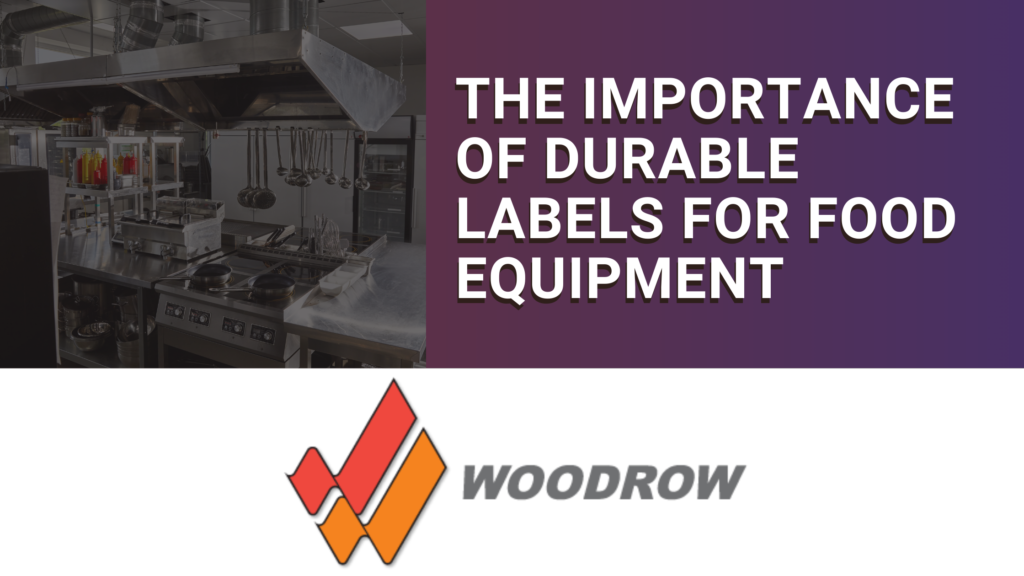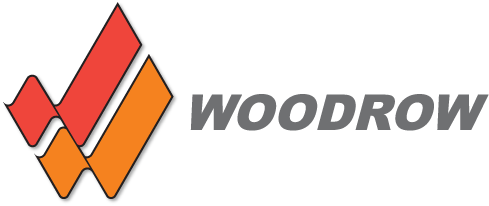
The Importance of Durable Labels for Food Equipment
In the food industry, hygiene, safety, and compliance are non-negotiable. From processing facilities to commercial kitchens, every piece of equipment must be labeled appropriately to ensure smooth operations, regulatory compliance, and, most importantly, food safety. However, not just any label will do—durable labels are essential for withstanding the harsh environments often found in food processing and preparation settings.
Let’s examine why durable labels are a critical investment in food equipment and how they help protect your business and consumers.
Why Are Durable Labels Necessary in Food Equipment?
Food equipment is exposed to demanding conditions. Whether it’s high-pressure cleaning, extreme temperatures, chemical sanitization, or heavy usage, labels on food equipment must remain intact and legible. Here’s why:
Regulatory Compliance
The food industry is heavily regulated by agencies like the FDA (Food and Drug Administration) and USDA (U.S. Department of Agriculture) to ensure that food is safe for consumption. Labels on food equipment often include important compliance information, such as safety guidelines, operating instructions, and cleaning procedures. If these labels wear off, fade, or peel, your business could face non-compliance issues, leading to fines, equipment shutdowns, or worse.
Food Safety
Durable labels help prevent cross-contamination and ensure food safety. For example, labels may indicate which cleaning products can be used with certain equipment, ensuring proper sanitation. In food preparation areas, labels also help workers quickly identify equipment, reducing the risk of using the wrong tool or machine for a particular task—especially in allergen-sensitive environments.
Resisting Harsh Conditions
Food equipment labels must endure exposure to various harsh conditions, including:
- High temperatures from cooking, boiling, or baking processes.
- Moisture from steam, washing, or spills.
- Chemicals used for cleaning and sanitization.
- Abrasion from daily handling and heavy equipment use.
If labels degrade under these conditions, they lose their ability to provide crucial information. Durable labels, made from polyester or polycarbonate, are designed to remain legible and intact despite these challenges, ensuring they can continue serving their purpose throughout the equipment’s lifespan.
Traceability and Inventory Management
Durable labels are essential for tracking food equipment through inventory management and maintenance cycles. Facility equipment typically has a unique identification label that provides tracking information. When equipment undergoes repairs, cleaning, or calibration, labels ensure the right item is returned to the correct place.
In equipment malfunction or contamination issues, traceability through durable labels helps pinpoint problem sources quickly, allowing faster corrective actions and minimizing production downtime.
Clear Communication
Durable labels often provide clear operational and safety instructions directly on the equipment. This is particularly important in fast-paced environments like commercial kitchens or food processing plants, where workers need quick access to instructions or warnings without referring to manuals. Faded or missing labels can lead to misuse or mistakes that compromise food safety and worker safety.
Brand Image and Professionalism
The appearance of food equipment in commercial kitchens and manufacturing facilities reflects on your brand. High-quality, durable, clean, legible, and professional labels signal that you take safety and hygiene seriously. Conversely, peeling or faded labels can send the wrong message to customers, inspectors, or employees, diminishing trust in your business’s standards.
What Makes a Label “Durable”?
Not all labels are created equal. To be considered durable in the food industry, labels must be made from specialized materials that resist damage from the various challenges in food environments. Some key factors that contribute to a label’s durability include:
- Material Composition: Labels made from polyester, polycarbonate, or vinyl are popular in food processing environments due to their resistance to chemicals, moisture, and high temperatures.
- Strong Adhesives: The adhesive used on durable labels must withstand steam, water, and cleaning chemicals without peeling or losing adhesion over time.
- Lamination or Coating: Protective coatings, such as UV-resistant laminates, help shield the label from fading, scratching, or staining.
- High-Quality Printing: Labels must have legible, fade-resistant text and images that remain clear even after repeated exposure to harsh conditions. Methods like thermal transfer printing or laser etching are commonly used for durable food equipment labels.
Applications of Durable Labels in Food Equipment
Durable labels play a variety of roles in the food industry. Here are just a few critical applications:
- Operating Instructions: Labels on equipment like ovens, mixers, or slicers provide clear instructions for operation, maintenance, and cleaning. These are often placed in visible locations for quick reference.
- Warning Labels: Food processing equipment can pose hazards if used incorrectly. Warning labels alert workers to risks like hot surfaces, sharp blades, or electrical hazards.
- Compliance Labels: Equipment in food production must meet specific regulatory standards. Labels identifying compliance with safety certifications, such as NSF (National Sanitation Foundation) or UL (Underwriters Laboratories), prove that your equipment meets safety and sanitation guidelines.
- Calibration Labels: Food equipment like scales or thermometers must be regularly calibrated to ensure accuracy. Calibration labels help track when equipment was last inspected and calibrated, reducing errors in food processing.
- Sanitation Instructions: Cleaning protocols are crucial in food environments. Durable labels on equipment may outline the necessary cleaning procedures, ensuring proper sanitation and reducing the risk of contamination.
Conclusion
Durable labels are essential to food equipment, helping businesses maintain compliance, ensure food safety, and operate efficiently. By investing in high-quality labels that withstand the harsh conditions of the food industry, you not only protect your equipment and employees but also build trust with your customers and regulatory bodies.
The food industry’s strict hygiene and safety standards demand nothing less than the best, and durable labels are a small but significant investment that helps safeguard the entire operation. Ensure your equipment remains clearly identified, compliant, and safe with long-lasting labels designed for food environments.

